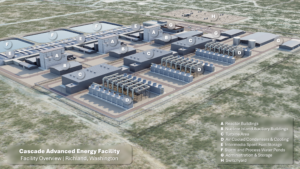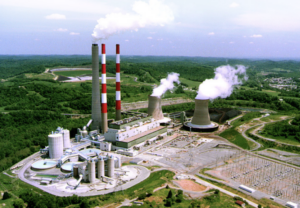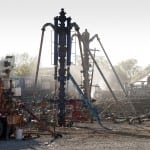The U.S. Environmental Protection Agency (EPA) is considering the imposition of nationwide reporting requirements for chemicals and mixtures used in fracking operations. On May 19, 2014, the EPA published an Advanced Notice of proposed rulemaking in the Federal Register seeking public input on the development of such a rule, including whether reporting should be mandatory or voluntary. The public has until Aug. 18, 2014, to submit comments to the EPA on the scope of the potential future rulemaking.
Recent technological advances in oil and gas extraction, including fracking, have led to a significant increase in the domestic extraction of oil and natural gas resources. The increasing use of fracking, however, has also resulted in widespread media coverage of fracking operations and alleged impacts, vocal opposition to fracking by some environmental groups, and the increasing regulation of fracking at the local, state, and, now, the federal level.
With the exception of drilling operations that occur on federal property, up to this point there has been minimal direct regulation of fracking at the federal level. Rather, fracking has been largely regulated on a state-by-state or local basis. For example, starting in 2014, California is requiring the public disclosure of fracking chemicals, including a list of chemicals used and their concentrations. A number of other states, including large oil and gas producing states like Wyoming, have already implemented similar reporting requirements. The industry has also set-up a website—FracFocus.org—that is widely used for the voluntary disclosure of fracking chemicals and already includes information on more than 70,000 wells nationwide.
Despite existing state regulation and the voluntary industry efforts, in 2011 a coalition of environmental groups led by Earthjustice filed a petition with the EPA asking the agency to impose mandatory nationwide industry reporting of drilling and fracking chemicals to remedy an alleged “gap” in disclosure requirements at the state-level. The petition also requested that the EPA exercise its authority under the Toxic Substances Control Act to require toxicity testing of fracking chemicals and the disclosure of health and safety data for such chemicals. In a press release accompanying the petition, the environmental groups claimed that “little is known about many of the chemicals used in drilling and fracking,” but nevertheless alleged that the chemicals are associated with various long- and short-term health effects. Although the EPA previously denied the portion of the petition asking for mandatory toxicity testing of fracking chemicals, it issued the Advanced Notice in response to the remaining issues raised by the petition.
The EPA seeks public input on a wide-range of issues to assist in the potential development of regulations applicable to fracking chemicals and mixtures, including:
- Whether the EPA should collect information on fracking chemicals and mixtures.
- If so, which legal mechanism the EPA should use to obtain chemical information and whether disclosure would be mandatory or voluntary.
- What companies or practices would be subject to reporting requirements or other regulation of fracking chemicals.
- Identification of best management practices for the generation, collection, reporting, and/or disclosure of public health and environmental information, potentially including health and safety studies, on chemicals and mixtures used for fracking.
- What practices or operations can be implemented to achieve protection of public health and the environment associated with fracking chemicals and mixtures.
- Whether voluntary third-party certification, and incentives for disclosure, could be valuable tools for improving chemical safety related to fracking.
- Whether incentives and recognition programs could be used to support the development and use of safer chemicals in hydraulic fracturing.
- Identification of options to minimize reporting burdens and costs, avoid duplication of efforts, and maximize transparency and public understanding associated with fracking chemicals.
The Advanced Notice is particularly relevant to companies that manufacture, import, process, or distribute any chemical substances or mixtures used in any type of hydraulic fracturing. The EPA indicates that reporting requirements could extend to chemical manufacturers, chemical suppliers who engage in processing, service providers mixing chemicals on site to create the hydraulic fracturing fluids, and service providers responsible for injecting the hydraulic fracturing fluid into the well to fracture a formation. This would include, at a minimum, businesses falling under the North American Industry Classification System codes 2111 (oil and gas extraction) or 2131 (support activities for mining).
If the EPA adopts a mandatory requirement to report on fracking chemicals, it will almost certainly do so under authority provided by the Toxic Substances Control Act. A mandatory rule would likely impose obligations on industry to publicly report the “identity, quantities, types and circumstances of uses of chemical substances and mixtures used in hydraulic fracturing” and to disclose health and safety studies, whether public or proprietary, related to such chemicals. Although the EPA would likely provide some level of trade-secret protection to industry, such protection might be narrower than what is provided under existing state disclosure requirements.
The Advanced Notice provides the oil and gas industry an opportunity to provide critical information to the EPA and influence the scope and direction of potential federal regulation of fracking at an early stage of the regulatory process. After evaluating the public comments, the EPA will decide whether to move forward with a proposed rule. If the EPA decides to proceed, the agency will be required to publish a detailed proposed rule, including the justification and basis for the rulemaking, and seek additional comment from the public on the specific requirements that would be imposed on industry.
The EPA has indicated that any new regulation will seek to “minimize reporting burdens and costs” on industry and try to avoid duplication of state requirements. Nonetheless, it is almost certain that the EPA’s involvement in this area will result in duplicative and conflicting reporting obligations and increased expense for industry. Additionally, this Advanced Notice, and a separate EPA study of the potential impacts of fracking on drinking water resources expected by the end of 2014, signals increasing EPA interest in regulating fracking operations. As such, if the EPA proceeds with a reporting requirement as suggested by the Advance Notice, the information it collects on fracking chemicals may be relied upon in future rulemakings to regulate other aspects of fracking operations.
—Tom Boer is a partner at Barg Coffin Lewis & Trapp, LLP in San Francisco.










